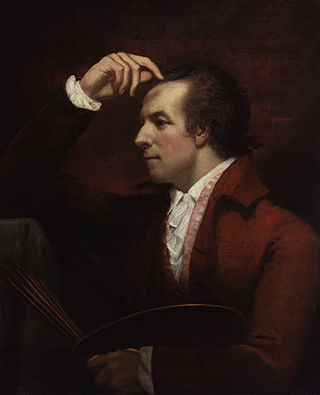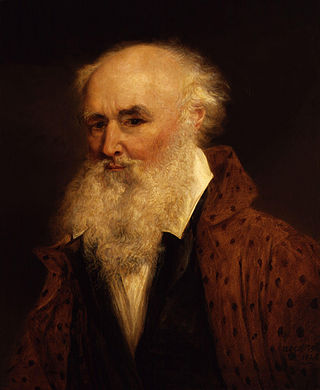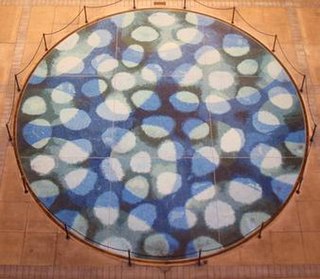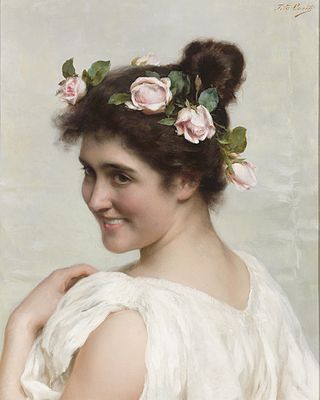
James Jackson Jarves (1818–1888) was an American newspaper editor and art critic who is remembered above all as the first American art collector to buy Italian primitives and Old Masters.

James Jackson Jarves (1818–1888) was an American newspaper editor and art critic who is remembered above all as the first American art collector to buy Italian primitives and Old Masters.
Jarves was the editor of an early weekly newspaper in the Hawaiian Islands, The Polynesian (1840–48). During the 1850s, Jarves relocated to Florence, Italy where he served as the U.S. vice-consul and collected art. [1] [2] After other American museums refused to buy Jarves' collection, Yale University granted him a loan with the collection as collateral. When Jarves defaulted in 1871, the Yale University Art Gallery purchased 119 Italian paintings, spanning the centuries from the tenth to the seventeenth, for a price of $22,000 or $30,000. [3] [4] [5] The "Master of the Jarves Cassone", later discovered to be Apollonio di Giovanni di Tomaso, was named after him. [3]
An honorary Hawaiian citizen, Jarves was awarded the order of Kamehameha I for his diplomatic services to Hawaii while empires fought to control it. The king of Italy appointed him Cavaliere della Corona d'Italia for his contribution to Italian art. [6] '
Jarves married Elizabeth Russell Swain in 1838. One year after his first wife's death, Jarves in 1862 married Isabella Kast Heyden who died in 1887. In 1888 Jarves died of jaundice; he is buried on the English Cemetery in Rome. [3]
Jarves and his second wife are, through their daughter Annabel, the great-great grandparents of Lady Elizabeth Marian Frances Kerr. Lady Elizabeth is the wife of Richard Scott, 10th Duke of Buccleuch and mother of the ducal heir. They are also the great-great-great grandparents of Henry Oliver Charles FitzRoy, 12th Duke of Grafton, whose mother is Lady Clare Amabel Margaret Kerr, widow of James FitzRoy, Earl of Euston and the sister of Lady Elizabeth Marian Frances Kerr.
Edith Wharton drew upon Jarves' well-known misfortunes in her novella False Dawn (The Forties). [5]
Some of his works: [6]
This list is incomplete.

James Northcote was a British painter.

Parade is a ballet choreographed by Leonide Massine, with music by Erik Satie and a one-act scenario by Jean Cocteau. The ballet was composed in 1916–17 for Sergei Diaghilev's Ballets Russes. The ballet premiered on Friday, May 18, 1917, at the Théâtre du Châtelet in Paris, with costumes and sets designed by Pablo Picasso, choreography by Léonide Massine, and the orchestra conducted by Ernest Ansermet.

James Ward was an English painter, particularly of animals, and an engraver.

Russell Sturgis was an American architect and art critic of the 19th and early 20th centuries. He was one of the founders of the Metropolitan Museum of Art in 1870.

Launt Thompson was an American sculptor.

Putnam's Monthly Magazine of American Literature, Science and Art was a monthly periodical published by G. P. Putnam's Sons featuring American literature and articles on science, art, and politics.
Francis Steegmuller was an American biographer, translator and fiction writer, who was known chiefly as a Flaubert scholar.

Osvald Sirén was a Finnish-born Swedish art historian, whose interests included the art of 18th century Sweden, Renaissance Italy and China.

John Webber was an English artist who accompanied Captain Cook on his third Pacific expedition. He is best known for his images of Australasia, Hawaii and Alaska.

Tadashi Sato was an American artist. He was born in Kaupakalua on the Hawaiian island of Maui. His father had been a pineapple laborer, merchant, and calligrapher, and Tadashi's grandfather was a sumi-e artist.

Huc-Mazelet Luquiens (1881–1961) was an American printmaker, painter and art educator who was born June 30, 1881, in Massachusetts to Jules Luquiens a French-speaking Swiss and Emma Clark who was born in Ohio.
Ladd & Company was an early business partnership in the Kingdom of Hawaii. Its founders were William Ladd (1807–1863), Peter Allen Brinsmade (1804–1859), and William Northey Hooper (1809–1878). The company was behind the first commercial sugarcane plantation and first international land speculation in the Hawaiian Islands.

Henry Martyn Whitney was an early journalist in the Kingdom of Hawaii. Born of early missionaries, he became the first postmaster and founded several long-lasting newspapers.
The Irascibles or Irascible 18 were the labels given to a group of American abstract artists who put name to an open letter, written in 1950, to the president of the Metropolitan Museum of Art, rejecting the museum's exhibition American Painting Today - 1950 and boycotting the accompanying competition. The subsequent media coverage of the protest and a now iconic group photograph that appeared in Life magazine gave them notoriety, popularized the term Abstract Expressionist and established them as the so-called first generation of the putative movement.
Warren Adelson is an American art dealer, art historian, and author specializing in 19th and 20th-century American Painting as well as contemporary art.

Tito Conti (1842–1924) was an Italian painter, mainly of genre costume or historical subjects.
James Davenport Whelpley (1817–1872) was an American physician, author, editor, inventor, and metallurgist.
Eduardo Gelli was an Italian painter, mainly of genre costume portraits.
Walter Granville-Smith (1870–1938) was an illustrator and painter who was born in South Granville, New York on January 28, 1870. He is notable for producing the first colored illustration that appeared in the United States. Granville-Smith and his wife, Jessie, had a daughter Jesse and sons, Walter. and Edward. Granville-Smith died on December 7, 1938, at his daughter's home in Jackson Heights, Queens, New York.

Madonna and Child is a tempera and gold on panel painting by Gentile da Fabriano, executed c. 1424, now in the Yale University Art Gallery in New Haven. It is signed on the left jamb "Gent / Fabriano". Previously traditionally dated to 1420–1423, the new accepted dating is based on similarities between the background architecture and the north door of the Florence Baptistery, completed by Lorenzo Ghiberti in 1424.